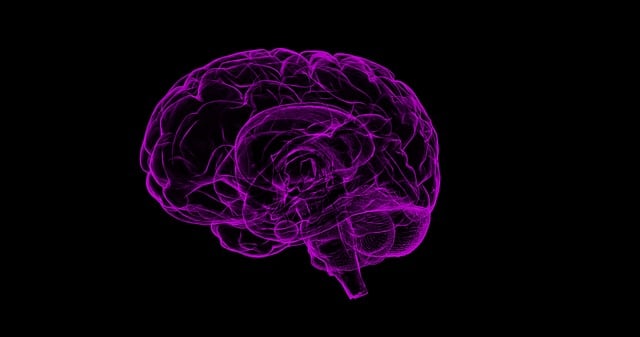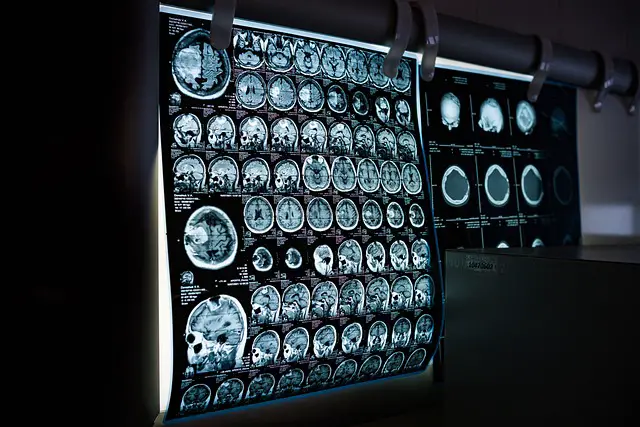Neurological disorders are caused by physical damage to your brain or nervous system, while psychological disorders are due to mental health issues such as depression, stress, or other emotional problems.
Neurological disorders Vs. Psychological disorders
(Photo by Iluha Zavaley on Unsplash )

Neurological and psychological disorders are two distinct categories of conditions that can affect the functioning of the brain and behavior, emotions, and cognition.
Neurological disorders refer to conditions that result from a structural or functional problem in the brain, spinal cord, or nervous system. These disorders often have physical symptoms, such as seizures, tremors, muscle weakness, and sensory disturbances. Examples of neurological disorders include Parkinson’s disease, epilepsy, multiple sclerosis, and Alzheimer’s disease.
Psychological disorders, on the other hand, refer to conditions that affect a person’s emotional, cognitive, or behavioral functioning. These disorders are often associated with abnormal patterns of thought, emotion, and behavior and can significantly impact a person’s ability to function in their daily life. Examples of psychological disorders include depression, anxiety disorders, bipolar disorder, and schizophrenia.
One of the main differences between neurological and psychological disorders is the underlying cause of the condition. Neurological disorders are typically caused by physical abnormalities or damage to the brain or nervous system, while psychological disorders are often the result of a combination of genetic, environmental, and social factors that affect a person’s mental and emotional health.
Another key difference between these two categories of disorders is the type of treatment they require. Neurological disorders are often treated with medications, surgery, or other medical interventions, while psychological disorders are typically treated with psychotherapy, behavioral therapy, or a combination of medication and therapy.
It is important to note that while neurological and psychological disorders are distinct categories, they can sometimes overlap or co-occur in individuals. For example, someone with Parkinson’s disease may also experience symptoms of depression, and a person with schizophrenia may develop neurological symptoms such as tremors or seizures. In these cases, a comprehensive approach that addresses both neurological and psychological symptoms is necessary for effective treatment.
How are neurological disorders treated?
(Image by Raman Oza from Pixabay )

The treatment for neurological disorders depends on the specific condition and its underlying cause. Here are some common approaches to treating neurological disorders:
- Medications: Many neurological disorders are treated with medications that can help manage symptoms or slow the progression of the disease. For example, anti-epileptic drugs are used to control seizures, while dopamine agonists are used to treat Parkinson’s disease.
- Surgery: In some cases, surgery may be necessary to treat neurological disorders. For example, brain surgery may be performed to remove a tumor, treat epilepsy, or alleviate pressure on the brain caused by a buildup of fluid.
- Physical therapy: Physical therapy can help people with neurological disorders regain strength, coordination, and mobility. This may include exercises to improve balance, walking, and other motor skills.
- Occupational therapy: Occupational therapy can help people with neurological disorders develop strategies to manage daily tasks and improve their ability to function independently.
- Speech therapy: Speech therapy can be helpful for people with neurological disorders that affect their ability to communicate. This may include exercises to improve speech, language, and swallowing.
- Lifestyle changes: Making lifestyle changes such as adopting a healthy diet, getting regular exercise, and managing stress can help improve overall health and well-being, which can in turn help manage some neurological conditions.
- Supportive care: In some cases, supportive care such as hospice or palliative care may be needed to manage symptoms and improve quality of life for people with advanced neurological disorders.
It is important to work with a healthcare professional to develop a treatment plan that is tailored to the specific neurological disorder and individual needs.
How are psychological disorders treated?
Psychological disorders are typically treated with a combination of psychotherapy, medication, and lifestyle changes. Here are some common approaches to treating psychological disorders:
- Psychotherapy: Psychotherapy, also known as talk therapy, involves working with a mental health professional to explore thoughts, feelings, and behaviors that may be contributing to psychological symptoms. Different types of psychotherapy, such as cognitive-behavioral therapy (CBT) and psychodynamic therapy, may be used depending on the specific disorder and individual needs.
- Medications: Medications may be used to treat some psychological disorders, such as depression, anxiety, and bipolar disorder. Different types of medications, such as antidepressants, antipsychotics, and mood stabilizers, may be used depending on the specific disorder and individual needs.
- Lifestyle changes: Making lifestyle changes such as improving sleep, reducing stress, and increasing physical activity can help manage some psychological disorders. In some cases, changes to diet and nutrition may also be recommended.
- Support groups: Support groups can provide a sense of community and help people with psychological disorders connect with others who are going through similar experiences.
- Self-care: Practicing self-care, such as engaging in relaxing activities, taking time for hobbies, and prioritizing self-care, can help manage symptoms of psychological disorders and improve overall well-being.
It is important to work with a mental health professional to develop a treatment plan that is tailored to the specific psychological disorder and individual needs. In some cases, a combination of approaches may be used to manage symptoms and improve quality of life.
What’s the difference between a neurologist and psychologist?
The main difference between neurologists and psychologists is that neurologists focus on the nervous system while psychologists focus on behavior.
Psychologists are trained to study human behavior and mental processes, while neurologists focus on diagnosing and treating disorders of the nervous system. Neurologists often work with patients who have problems with their brain or nervous system, such as Alzheimer’s disease, epilepsy, or stroke. Psychologists may work with patients who have anxiety, depression, or other mental health disorders.
Is anxiety a neurological or psychological disorder?
Anxiety is a mental health disorder that can have both neurological and psychological components. It is characterized by feelings of worry, nervousness, or fear that are often accompanied by physical symptoms such as rapid heartbeat, sweating, and trembling.
Anxiety disorders can be caused by a variety of factors, including genetics, environment, and individual differences in brain chemistry and functioning. Research has shown that people with anxiety disorders often have differences in the structure and function of certain brain regions, such as the amygdala and prefrontal cortex, which are involved in processing emotions and regulating stress.
At the same time, anxiety disorders can also have psychological components, such as negative thought patterns and beliefs that contribute to feelings of worry and fear. Psychotherapy, such as cognitive-behavioral therapy, can be effective in helping individuals with anxiety disorders identify and challenge these negative thought patterns, and develop coping strategies to manage their symptoms.
Treatment for anxiety disorders may also involve medication, such as antidepressants and anti-anxiety drugs, which can help regulate brain chemistry and reduce symptoms. Overall, anxiety disorders are complex conditions that involve both neurological and psychological factors, and treatment often involves a combination of approaches tailored to the individual’s specific needs.
Is schizophrenia a neurological or psychological disorder?
Schizophrenia is a complex mental health disorder that affects a person’s thoughts, feelings, and behaviors. While the exact cause of schizophrenia is not fully understood, research suggests that it may involve a combination of genetic, environmental, and neurological factors.
Although schizophrenia is classified as a mental health disorder, it can also be considered a neurological disorder because it affects the functioning of the brain. People with schizophrenia often experience structural and functional changes in their brain, including changes in the size and activity of different brain regions, as well as alterations in the levels of certain neurotransmitters that are involved in communication between brain cells.
Some of the neurological symptoms of schizophrenia include hallucinations, delusions, disorganized thinking and speech, and difficulties with memory and concentration. Treatment for schizophrenia typically involves a combination of medication, psychotherapy, and supportive care, which can help manage symptoms and improve quality of life.
In summary, schizophrenia is a complex disorder that involves both neurological and psychological factors. While it is classified as a mental health disorder, it is also considered a neurological disorder because it affects the functioning of the brain.
What are some common neurological disorders?
Neurological disorders are those that affect the nervous system, which includes the brain and spinal cord. Common neurological disorders include Alzheimer’s disease, Parkinson’s disease, stroke, and epilepsy. These disorders can cause a wide range of symptoms, from mild to severe.
What are some common psychological disorders?
There are many different types of psychological disorders, but some of the more common ones include anxiety disorders, depression, and bipolar disorder. Each of these disorders can have a significant impact on a person’s life, and can often be very difficult to treat.
What are the causes for neurological disorders?
There are many possible causes for neurological disorders, including genetic factors, physical injury, infections, exposure to toxins, and problems with the immune system. In some cases, the cause is unknown.
What are the causes for neurological disorders?
There are many possible causes for neurological disorders, including genetic factors, physical trauma, infection, and exposure to toxins. Many of these disorders are complex and may have multiple contributing factors.
Featured Image By – Image by Dmitriy Gutarev from Pixabay









